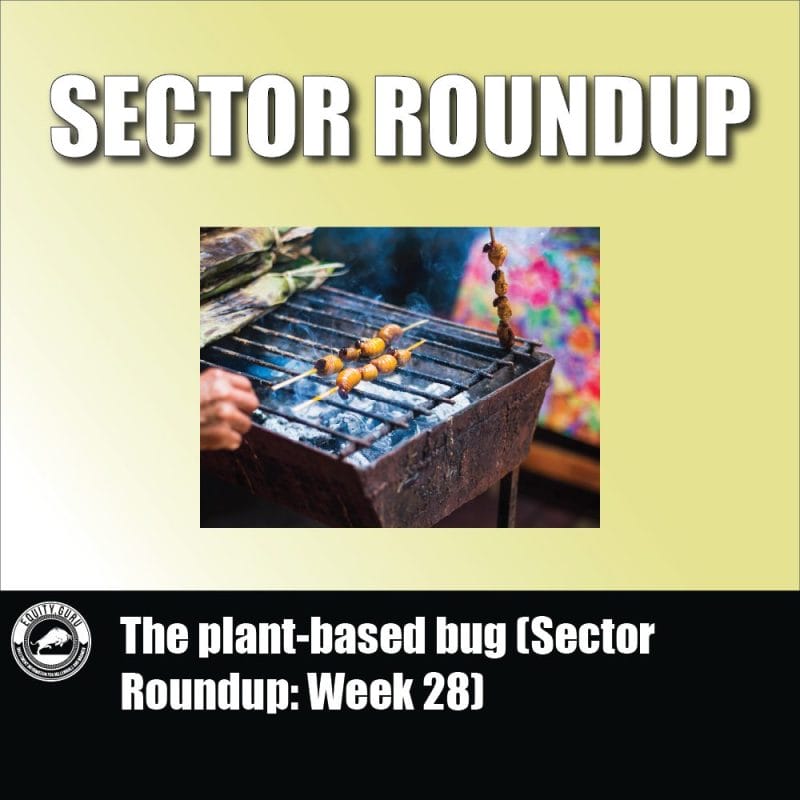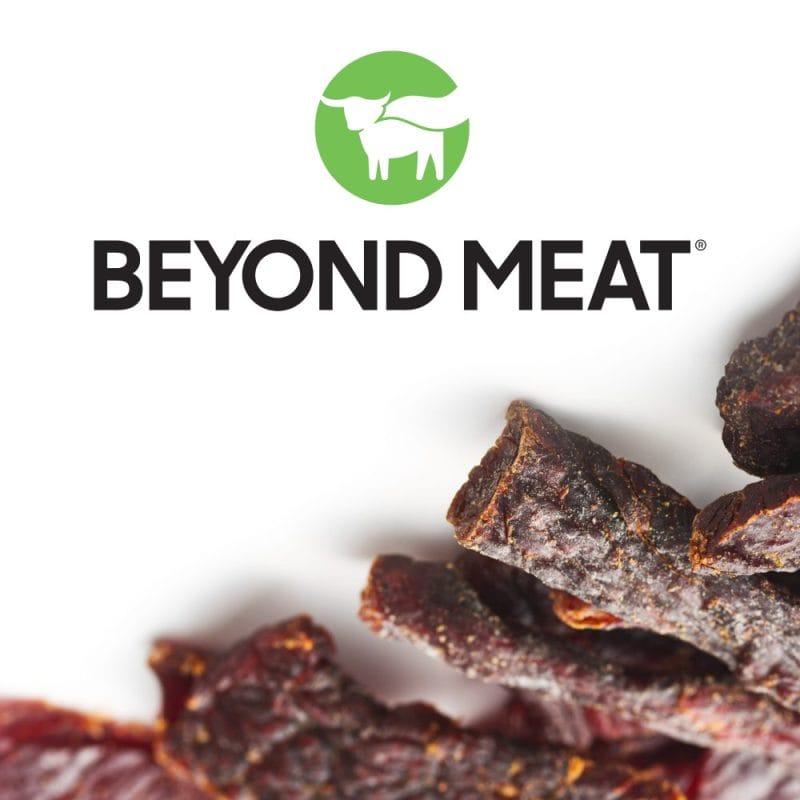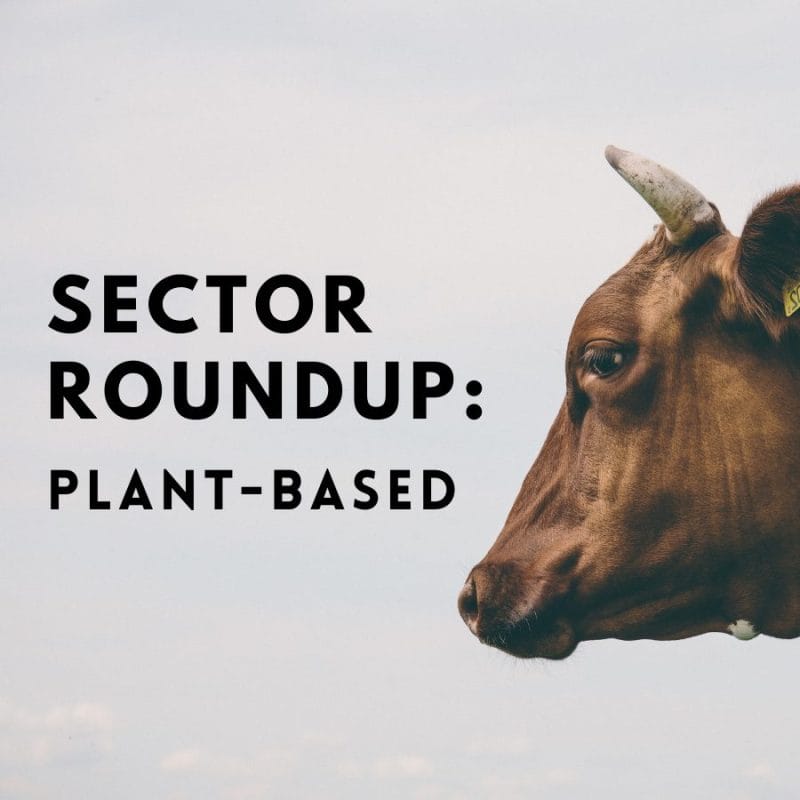Tim Hortons pulled their Beyond Meat (BYND.Q) offerings from all stores except those in B.C. and Ontario yesterday after a short two month run.
It’s a little early to tell, but this might signal the end of our enduring fascination with Beyond Meat’s alternative protein offerings. Especially when even A&W, which is possibly the most culpable for giving this company the exposure it needed to get as big as it is as fast as it did, has started putting it on sale.
Beyond meat is supposed to be able to compete with actual meat in terms of taste, texture and nutrition. (Short answer: it can’t.) We originally wrote about the BYND’s offerings earlier in the summer and actually sent one of our reporters down to the local A&W to sample their wares.
Here’s what we wrote:
But because we’re all about good, diligent journalism here at Equity.Guru, I thought I’d put my money where my mouth was (literally) and go and try one for myself. The A&W on the corner had been advertising their Beyond Burger for months and most of the time they’re sold out, but I got my hands on one.
Here’s how it went:
There was nothing different about the burger when I tore open the package.
It had the same smell, the same ingredients, but the first bite told me all I needed to know: the consistency was off; it was softer inside somehow than animal meat, with a rubbery exterior. While the slightly salty, tangy taste was not unpleasant, it wasn’t going to win me over either.
This product needs to win over people like me—skeptics and omnivores who wouldn’t normally even so much as glance at a burger made of vegetables—if it’s going to be competitive going forward in this emerging market.
—Joseph Morton
There’s some curiosity as to just what’s behind the enduring popularity.
Unless your taste palate includes vaguely salty cellophane, it’s not the taste. It’s definitely not for its health benefits either. (More on that later.) So what is it?
There’s a certain political stripe that goes along with niche food like Beyond Meat. It’s the sustainability tribe looking to save humanity from itself by reducing the amount of cow farts contributing to our warming atmosphere. It’s a simple equation: more vegetable-based food means fewer cows, and fewer cows means fewer cow farts (and also fewer factories gobbling fossil fuels and spitting out CO2.)
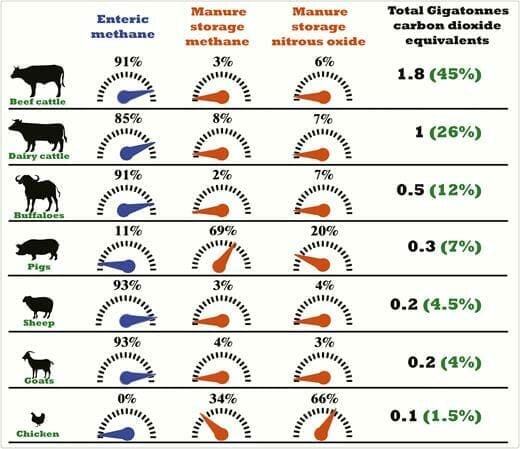
- A poll conducted by the CBC indicated that many Canadians are concerned about global climate change—lead by younger Canadians—as 38% of respondents said that “our survival depends on addressing” climate change while 25% called it a top priority. Another 20% said it’s important, but not a top priority and 11% said it wasn’t a priority at all. Lastly, six per cent of respondents did the climate change denial dance, and likely also believe that the world is flat and the governments of the world are comprised of David Icke’s lizard people.
Now what kind of changes and sacrifices do you think Canadians would agree to make?
The concern about cost was most starkly demonstrated when respondents were asked how much they would be willing to pay in taxes every year to help prevent climate change.
Nearly one-third, or 32 per cent, said they were unwilling to pay anything at all, while 17 per cent said they would be willing to pay less than $100 in taxes every year. Netflix’s most basic plan comes in at a yearly price tag of $120.
That’s 49% of Canadians who value their Netflix subscriptions more than the health of the planet.
Most of those people, we should add, are located in Canada’s major metropolitan centers—Vancouver and Toronto.
It almost seems contradictory because those two cities tend to be the most health conscious as well, because Beyond Meat is not healthy in any way, shape or form.
“The Beyond Meat burger is technically a processed food. We know that diets higher in processed foods are linked to the development of disease,” dietician Amanda Lapidus said.
A National Institute of Health study confirmed everything your mother told you about fast food is true. When people eat more processed foods, they are more likely to take in more calories and gain weight. Added weight gain often leads to more complications like kidney disease, diabetes, hypertension, high cholesterol and heart disease.
The Heart and Stroke Foundation defines ultra-processed foods as those that “go through multiple processes (extrusion, moulding, milling, etc.), contain many added ingredients and are highly manipulated.” This includes hot dogs, chicken nuggets, sweetened breakfast cereals, ice cream and chocolate. And Beyond Meat products.
For someone who has hypertension, a Beyond Meat burger at A&W — which has more than half your daily requirement of sodium (1,110 mg) — is not a good option. The teen burger, which has bacon, has 910 mg of sodium.
That’s right. Something with delicious bacon is actually better for you than a Beyond Meat burger. Chew on that for a moment.
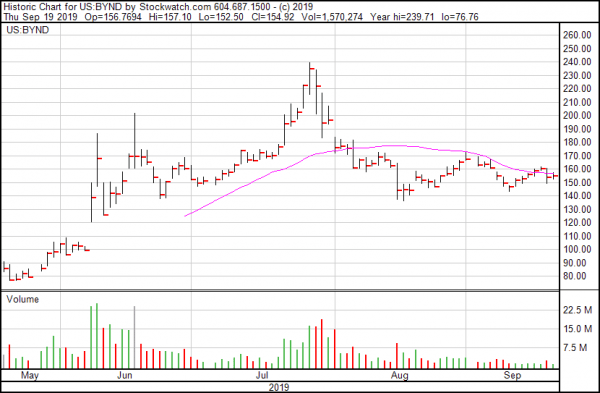
The precipitous drop in July looks to have slowed and now the stock is getting some resistance as it tries to climb back to the $150 mark. But of particular note is their price to sales ratio, which suggests this company is wildly overvalued.
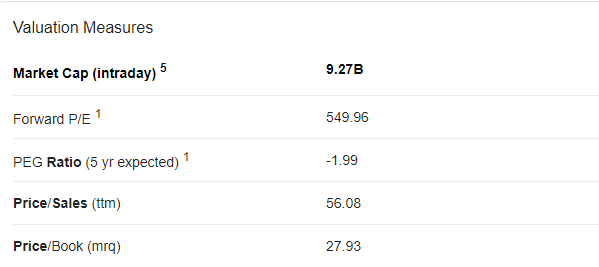
Overvaluation may result from an uptick in emotional trading, or illogical, gut-driven decision-making, that artificially inflates the stock’s market price. The cultural zeitgeist. Hype not hunger.
Kinda sounds like Beyond Meat to me.
—Joseph Morton





